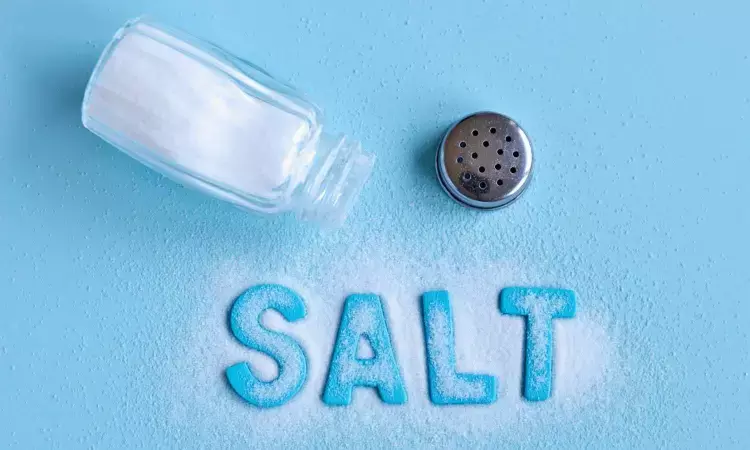- Home
- Medical news & Guidelines
- Anesthesiology
- Cardiology and CTVS
- Critical Care
- Dentistry
- Dermatology
- Diabetes and Endocrinology
- ENT
- Gastroenterology
- Medicine
- Nephrology
- Neurology
- Obstretics-Gynaecology
- Oncology
- Ophthalmology
- Orthopaedics
- Pediatrics-Neonatology
- Psychiatry
- Pulmonology
- Radiology
- Surgery
- Urology
- Laboratory Medicine
- Diet
- Nursing
- Paramedical
- Physiotherapy
- Health news
- Fact Check
- Bone Health Fact Check
- Brain Health Fact Check
- Cancer Related Fact Check
- Child Care Fact Check
- Dental and oral health fact check
- Diabetes and metabolic health fact check
- Diet and Nutrition Fact Check
- Eye and ENT Care Fact Check
- Fitness fact check
- Gut health fact check
- Heart health fact check
- Kidney health fact check
- Medical education fact check
- Men's health fact check
- Respiratory fact check
- Skin and hair care fact check
- Vaccine and Immunization fact check
- Women's health fact check
- AYUSH
- State News
- Andaman and Nicobar Islands
- Andhra Pradesh
- Arunachal Pradesh
- Assam
- Bihar
- Chandigarh
- Chattisgarh
- Dadra and Nagar Haveli
- Daman and Diu
- Delhi
- Goa
- Gujarat
- Haryana
- Himachal Pradesh
- Jammu & Kashmir
- Jharkhand
- Karnataka
- Kerala
- Ladakh
- Lakshadweep
- Madhya Pradesh
- Maharashtra
- Manipur
- Meghalaya
- Mizoram
- Nagaland
- Odisha
- Puducherry
- Punjab
- Rajasthan
- Sikkim
- Tamil Nadu
- Telangana
- Tripura
- Uttar Pradesh
- Uttrakhand
- West Bengal
- Medical Education
- Industry
High-salt diet leads to liver fibrosis with enterococcus pathway

The results of a study published in the Microbiology Spectrum Journal found that high-salt diets (HSD) exacerbated liver injury and fibrosis compared to a normal diet (ND) via enterococcus induced macrophage activation.
Salt is an essential component of the human diet, but excessive consumption can lead to serious health problems. One of these is liver fibrosis, a condition characterized by the accumulation of scar tissue in the liver. The long-term effects of on liver fibrosis are unclear, and this study aimed to explore the impact of HSD on the condition. The team led by Xujun Zhang used a mouse model of carbon tetrachloride (CCL4)-induced liver fibrosis to evaluate the effects of HSD on liver injury and fibrosis.
The protein expression levels of TGF-β, TNF-α, and MCP-1 were significantly higher in the HSD group than in the normal group. These factors are known to be involved in the development of liver fibrosis.
The study also found that HSD altered the gut microbiota composition, impaired the intestinal barrier function, and promoted the translocation of bacteria, particularly Enterococcus.
In vitro experiments showed that Enterococcus induced macrophage activation through the NF-κB pathway, leading to the expression of fibrosis-related genes and the development of liver fibrogenesis. The study also found that Enterococcus disrupted the gut microbiome in vivo and significantly increased the expression of fibrotic markers in the liver.
These findings have important implications for liver fibrosis therapy and gut microbiota management. The study suggests that an HSD can exacerbate liver fibrosis by altering the gut microbiota composition, and that this may serve as a new target for liver fibrosis therapy. The study also highlights the importance of and other related health problems.
Source:
Zhang, X., Liang, Y., Jiang, J., Lu, C., Shi, F., Cao, Q., Zhang, Y., & Diao, H. (2023). A High-Salt Diet Exacerbates Liver Fibrosis through Enterococcus -Dependent Macrophage Activation. In Y. Fu (Ed.), Microbiology Spectrum. American Society for Microbiology. https://doi.org/10.1128/spectrum.03403-22
Neuroscience Masters graduate
Jacinthlyn Sylvia, a Neuroscience Master's graduate from Chennai has worked extensively in deciphering the neurobiology of cognition and motor control in aging. She also has spread-out exposure to Neurosurgery from her Bachelor’s. She is currently involved in active Neuro-Oncology research. She is an upcoming neuroscientist with a fiery passion for writing. Her news cover at Medical Dialogues feature recent discoveries and updates from the healthcare and biomedical research fields. She can be reached at editorial@medicaldialogues.in
Dr Kamal Kant Kohli-MBBS, DTCD- a chest specialist with more than 30 years of practice and a flair for writing clinical articles, Dr Kamal Kant Kohli joined Medical Dialogues as a Chief Editor of Medical News. Besides writing articles, as an editor, he proofreads and verifies all the medical content published on Medical Dialogues including those coming from journals, studies,medical conferences,guidelines etc. Email: drkohli@medicaldialogues.in. Contact no. 011-43720751


